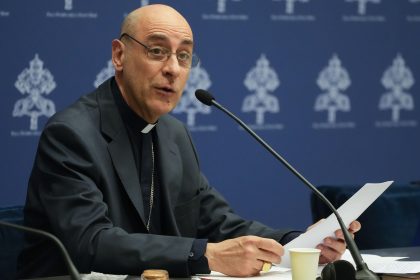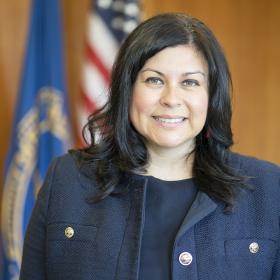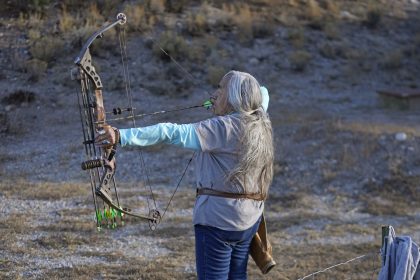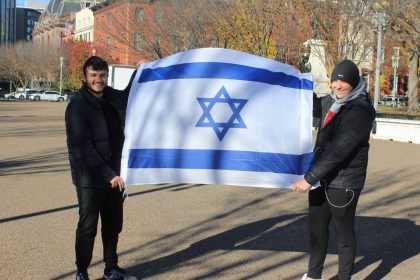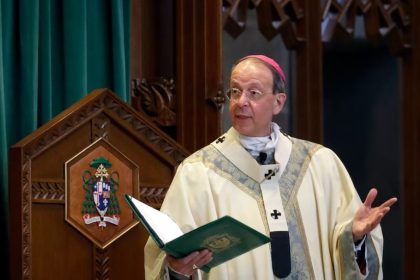An Illinois University Got Major Pushback for Cutting Religion, French and Anthropology. But Other Colleges Are Dropping the Humanities too
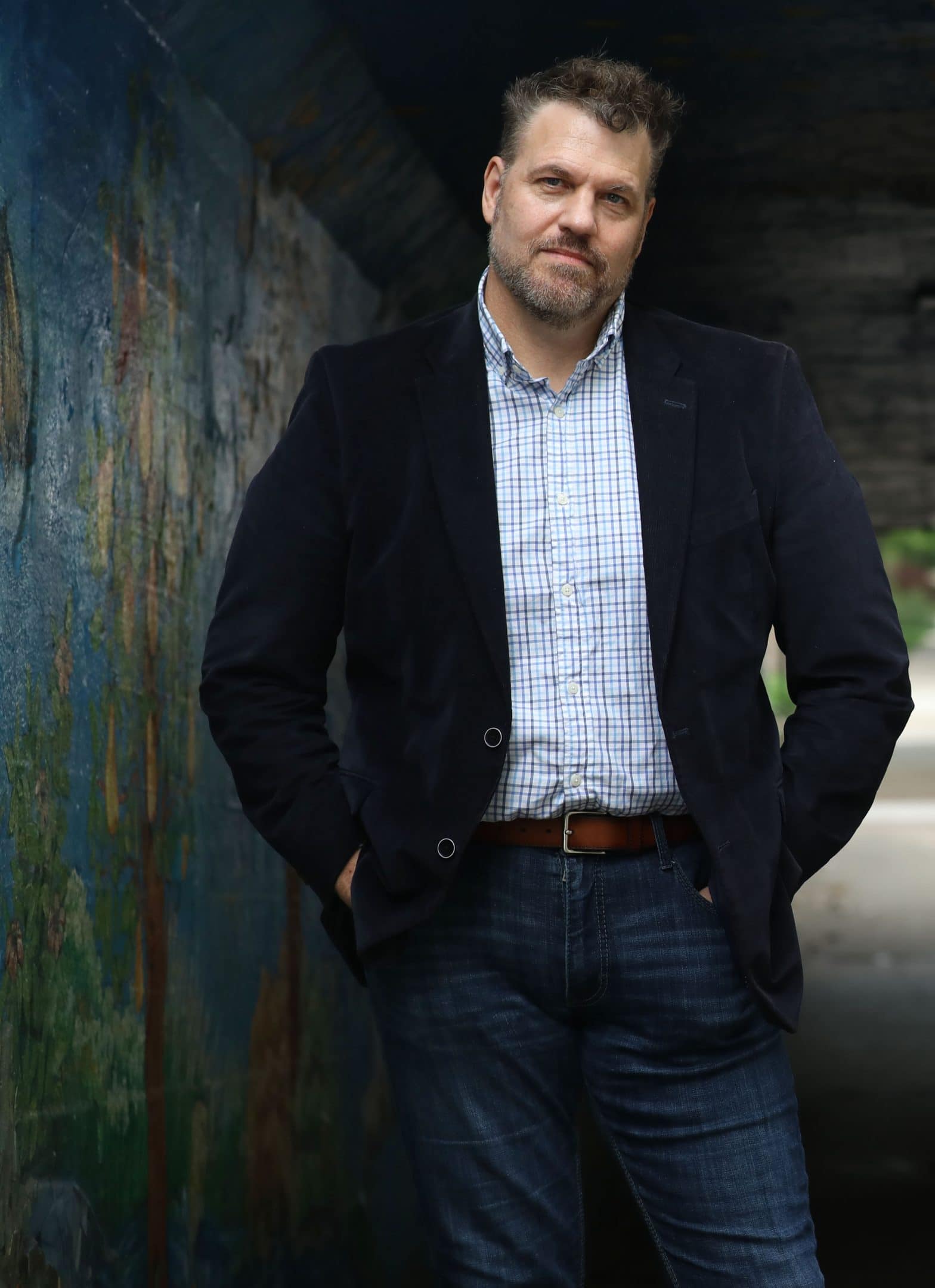
CHICAGO — Scott Sheridan didn’t expect his 23 years of teaching at Illinois Wesleyan University to end like this.
Though fewer students are pursuing degrees in his areas of study these days, many still participate. This semester, more than 50 students at the campus in Bloomington are taking advanced classes in French cinema and Italian cultural history. The spots filled up so quickly that more were added, Sheridan said.
But programs in French and Italian won’t continue beyond this school year. And neither will those in religion, anthropology, American cultural studies and three other academic departments slated to close in the 2021-22 school year. School officials say they plan to offer introductory courses in some of the affected topics, but new students won’t be able to major or minor in them.
The cuts are the result of a controversial curriculum review that began last year, pitting administrators trying to revamp offerings for career-oriented students and balance the budget against defenders of the humanities, including professors and alumni, who worry IWU will lose its identity as a bastion for liberal arts. Current students working toward degrees in affected programs will be able to complete them.
“People sometimes disregard or dismiss terms like humanities and liberal arts. They don’t understand what that does to their careers,” Sheridan said, explaining that skills such as critical thinking and communication are marketable. “We have an educational model in the United States that sometimes privileges the professional degree tracks.”
After Sheridan, a tenured professor, received notice that his position will be terminated in August 2021 and other instructors raised concerns about the decision-making process, a national association for university professors intervened and opened an investigation into whether IWU violated regulations in the faculty handbook.
The situation reflects the broader struggle in U.S. higher education to sustain interest in humanities courses. In the last decade, dozens of colleges that once operated as liberal arts schools have closed, merged with other institutions or shifted their focus to preprofessional programs, research shows. And fewer students are choosing to major in disciplines such as history or philosophy, instead steering their tuition dollars toward career and technical training.
On paper, IWU President Georgia Nugent might seem like an ally for worried professors. Before joining IWU last year, Nugent taught classics at Princeton and Brown universities and served as president of Kenyon College, a small school in Ohio that boasts its “long-standing literary tradition.” As a senior fellow at Council of Independent Colleges, Nugent also helped spearhead a campaign promoting the benefits of a liberal arts education.
But while Nugent described herself in a Tribune interview as a “huge believer in liberal arts,” she said that colleges must evolve to best serve students and their changing desires.
Nugent said fewer than 30 of IWU’s 1,600 students chose to major in religion, anthropology and French last year. There were no Italian majors because the school had only offered a minor. But other subjects, such as nursing and accounting, are seeing significantly higher enrollment, she said.
“There are places like a Harvard or a Stanford with multiple of billions of dollars of endowment,” Nugent said. “(There), it doesn’t matter. When I was teaching at Princeton, we could offer Sanskrit if one student took it. That was fine. In my mind, it’s kind of impossible to separate education and finance.”
Tough choices aren’t limited to IWU, where the endowment stands at $204 million. They are happening across the country as schools face difficult financial conditions and declining enrollment, further exacerbated by the COVID-19 pandemic.
In all, nine tenured faculty members at IWU were affected by the program cuts. Two transferred departments, while others are taking early retirements or negotiated departure dates over the next couple of years, Nugent said.
The school has been able to reach employment agreements with everyone but Sheridan, though faculty supporters contend the terms are not satisfactory. Other affected professors contacted by the Tribune did not respond or provide comment.
Academics have long bemoaned the decline of the humanities on America’s college campuses, and the data suggests they have cause for concern.
The number of undergraduate students earning degrees in the humanities dropped sharply between 2012 and 2015, according to the American Academy of Arts and Sciences. Compared with fields such as medicine and engineering, the overall share of undergrads earning humanities degrees had fallen for 10 consecutive years, sinking below 12% in 2015, the most recent year for which cumulative data was available.
In a May report, the academy found that at least 6 million students were enrolled in humanities courses in 2017, but many liberal arts disciplines continue to see substantial declines. Fewer undergraduate degrees were awarded in English, history and philosophy in 2017 than five years prior, the report says.
Not all scholars are willing to accept the downward trajectory. Eric Boynton, provost and dean of Beloit College in Wisconsin, said schools should be assessing their staffing levels to adapt, creating interdisciplinary opportunities and trying to show students that liberal arts courses are worthwhile no matter what career path they are pursuing.
At Beloit, for example, Boynton merged the departments of religious studies and critical race theory because the courses had overlapping themes and one professor was retiring, he said.
“I actually think the world is in crisis, and what the world needs is a liberal arts-trained population,” Boynton said. “Part of my job is to alter that narrative: It’s not the decline in liberal arts that we’re experiencing, it’s the recognition that liberal arts needs to once again rethink and reimagine itself.”
At some schools, however, decisions to collapse departments or reduce humanities classes have elicited widespread backlash.
In 2019, the University of Wisconsin at Stevens Point nixed an unpopular idea to cut 13 majors, including history and foreign languages. And last month, Adrian College in Michigan backtracked on plans to eliminate the theater, history and joint religion and philosophy departments after students objected in a social media campaign.
After receiving a deluge of angry messages from alumni, faculty and staff, Adrian’s president announced Sept. 1 that layoff notices issued to 11 affected faculty members would be rescinded. The programs will remain permanently, a spokeswoman said.
Students at Illinois Wesleyan have tried to create the same momentum, but administrators show no signs of budging.
In June, alumni launched an online petition titled “In Support of IWU’s Liberal Arts” that garnered 875 signatures from graduates and urged the trustees to reconsider the “draconian” program cuts.
In July, two weeks before a board of trustees meeting where changes would be finalized, students rallied on campus to express their opposition. Maeve Plunkett, a senior majoring in German and international studies, said she traveled from her home in Glenview, with her parents and boyfriend, to speak at the demonstration.
Plunkett said she felt compelled to participate because the German language program was cut the year before, while she was studying abroad, and she knows firsthand how difficult it can be to complete a major once a department has vanished.
To earn her degree, Plunkett said she’s had to take German classes at other schools, such as Loyola University Chicago, and pay out of her own pocket. At the time of the rally, trustees were also considering eliminating programs in the music school, sociology and philosophy.
“It wasn’t really on anyone’s radar that anything else was going to be taken away,” said Plunkett, 21. “And it definitely wasn’t on anyone’s radar that it would happen this quickly and this broadly.”
But the event didn’t entirely sway trustees. The six-person board unanimously voted July 16 to close departments in religion, French, Italian and anthropology. They spared others, voting instead to “transform” them.
In a less contentious decision this spring, the board approved closures of programs in American cultural studies, international business, design technology and entrepreneurship and Greek and Roman studies, based on faculty recommendations.
Taylor Plantan, a senior English literature major, finds it troubling that students were largely left out of the discussion. She said students were not asked for feedback or ideas by administrators. Though she sent a letter outlining her position to Nugent and the trustees, she said she never got a response.
“I’ve gained skills that I would otherwise not be privy to, and I think these departments have shown a dedication to bettering our generation,” said Plantan, 21, of Rolling Meadows. The program closures, she added, “that push for social change, for human understanding for diverse perspectives would be limited.”
Though the cuts are finalized, opponents haven’t stopped mobilizing. An online fundraiser created by concerned alumni and students has collected more than $7,000 for faculty who need help with legal fees connected to the employment dispute.
“Interrupting a faculty member’s career after many years at an institution has devastating prospects,” the page says. “These individuals have dedicated their lives to become experts in their fields and years investing in the development of IWU’s reputation for excellence. Simply finding a new position, during a global pandemic no less, is not so simple.”
Despite the student pushback, media attention and conflict with faculty, Nugent said she stands by the decisions to revise the curriculum.
IWU’s enrollment has shrunk by 400 students in the last five years and the school needs to make changes to meet that reality, Nugent said. And the students who are coming are not flocking to the same courses anymore.
“This generation of students, in their lifetimes, have experienced two major worldwide economic upheavals,” Nugent said. “They’ve seen technology change their everyday lives continually since they were children. They see climate change. They see the racial injustice. And they’re more pragmatic, in a sense. They want to get out there and do something to make change.”
The dispute over how decisions were made at Illinois Wesleyan and whether, as some say, Nugent and the board of trustees overrode faculty input, has prompted the American Association of University Professors, a nonprofit representing academic professionals, to investigate. Should the AAUP find that administrators overstepped, it can sanction the university. That’s a largely symbolic gesture but could be viewed as a stain on the school’s reputation.
An AAUP spokeswoman said it plans to issue a report in early 2021.
In a letter to the AAUP last month, the university defended its process, saying faculty were given opportunities to research the departments under review, collect data on enrollment and provide written testimony. The university maintains that faculty played a key role in course evaluations by participating in a program review task force, even if some final decisions diverged from their recommendations.
“The ultimate decision belonged to the Board,” the letter says. “The question is whether the views of the faculty were solicited and considered. The answer to that question is indisputably yes.”
Michael Theune, an English professor who serves on IWU’s version of a faculty senate, disputes the university’s motives, saying the cuts were made out of financial considerations and not to improve the curriculum.
He said faculty were initially led to believe that no tenured professors would lose their jobs as a result of the review, pointing to minutes from an October 2019 stating Nugent “has made it clear to the faculty and to the Board that we will not be firing any tenured faculty members,” according to a copy provided to the Tribune.
“Tenure is supposed to create a kind of deep connection between the institution and the professor,” he said. “With so many of the professors who have been affected by what’s happened, it’s not just their jobs going away. It’s that deep connection they had fostered with the institution that students benefited from greatly.”
Nugent said her comments have been misconstrued, suggesting the emotional nature of the issue affected recollections. She said the goal was never to terminate professors, a message she tried to communicate repeatedly in written correspondences.
For Sheridan, the recent events have resulted in shock and disappointment. Sheridan, 54, said he feels a close connection to IWU and Bloomington, where he’s lived and raised his children for more than two decades, and is processing next steps. He said he’s working with an attorney and considering filing a employment grievance with IWU.
“We believed that our positions were valued and relevant,” Sheridan said. “To be told by the administration and the board of trustees that you are no longer needed, it’s like a loss. … Like grieving the death of a loved one because you are grieving the death of part of your identity. It’s devastating.”
———
©2020 Chicago Tribune
Distributed by Tribune Content Agency, LLC.
















